Government
Ethiopia follows a multi-party democratic political system and the federal government system with legislative authority resting with the government headed by an executive Prime Minister and the elected House of Representatives (547 members) and the House of Federation (110 members). The Prime Minister is chosen by the election winner party in power following multi-party democratic national and federal state elections which are held every five years. Parties can be registered at either the national or the federal state level. The President is elected by the members of the House of People’s Representatives.
Capital City
Addis Ababa, one of the two chartered cities in the Federation, is the seat of the Federal Government. It is the largest city in the country with an estimated population in millions. It lies on the central plateau at an altitude of 2300-2400 meters, and with an average temperature of around 160C.
Addis Ababa, founded in 1887, is a host to the African Union (AU), to the United Nations Economic Commission for Africa (ECA), and also, it’s a home to numerous Embassies and Consulates, making it a key diplomatic center in Africa. Several other international organizations have their headquarters and offices in the city.
The Council of Ministers
According to Article 76 of the Constitution of the Federal Democratic Republic of Ethiopia, the Council of Ministers is accountable to the Prime Minister. In all its decisions, the Council of Ministers which comprises the Prime Minister, the Deputy Prime Minister, Ministers and other members as may be determined by law, are responsible to the House of People’s Representatives. The power and functions of the Council of Ministers is stipulated in Article 77 of the Constitution.
Per Proclamation No. 1097/2018, defining the power and duties of the executive organs of the Federal Democratic Republic of Ethiopia, the following Ministries are established:
H.E. Ambassador Taye Atske-Selassie
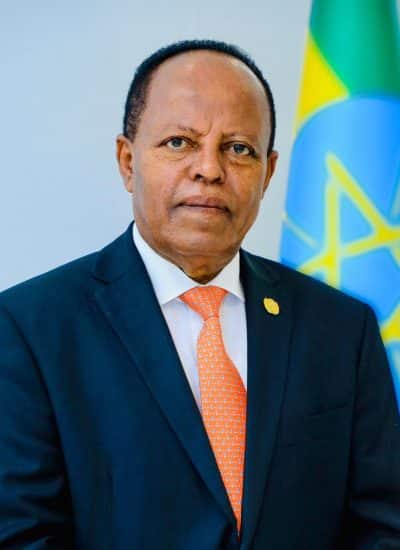
H.E. Abiy Ahmed Ali (PhD)
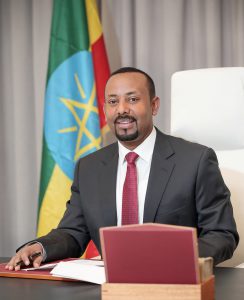
Speaker of the House of People’s Representatives:
H.E. Tagese Chafo
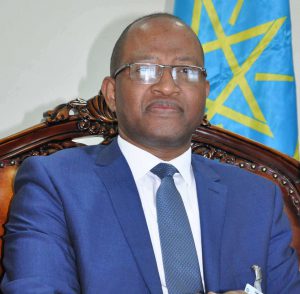
H.E. Temesgen Tiruneh
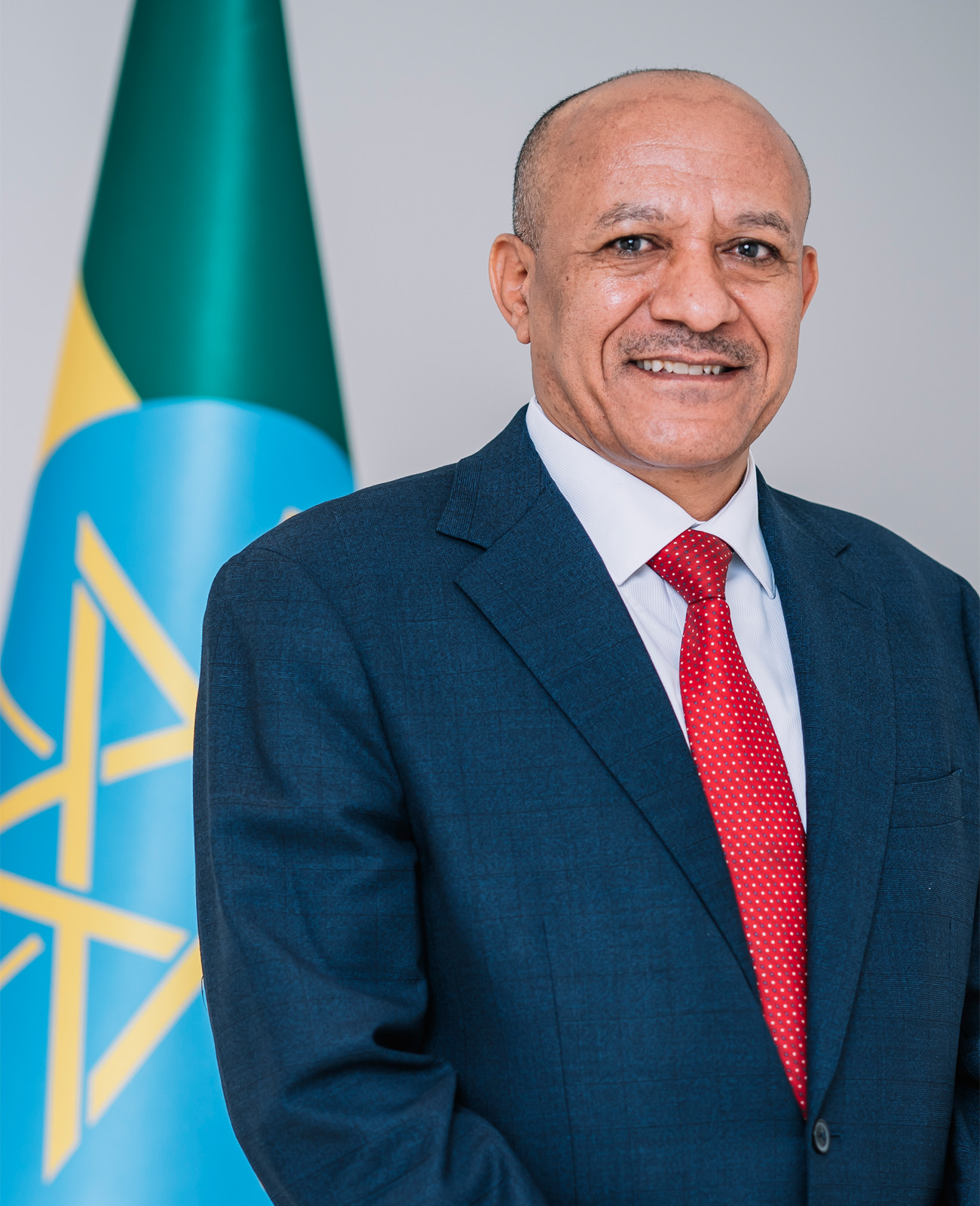
H.E. Binalf Andualem
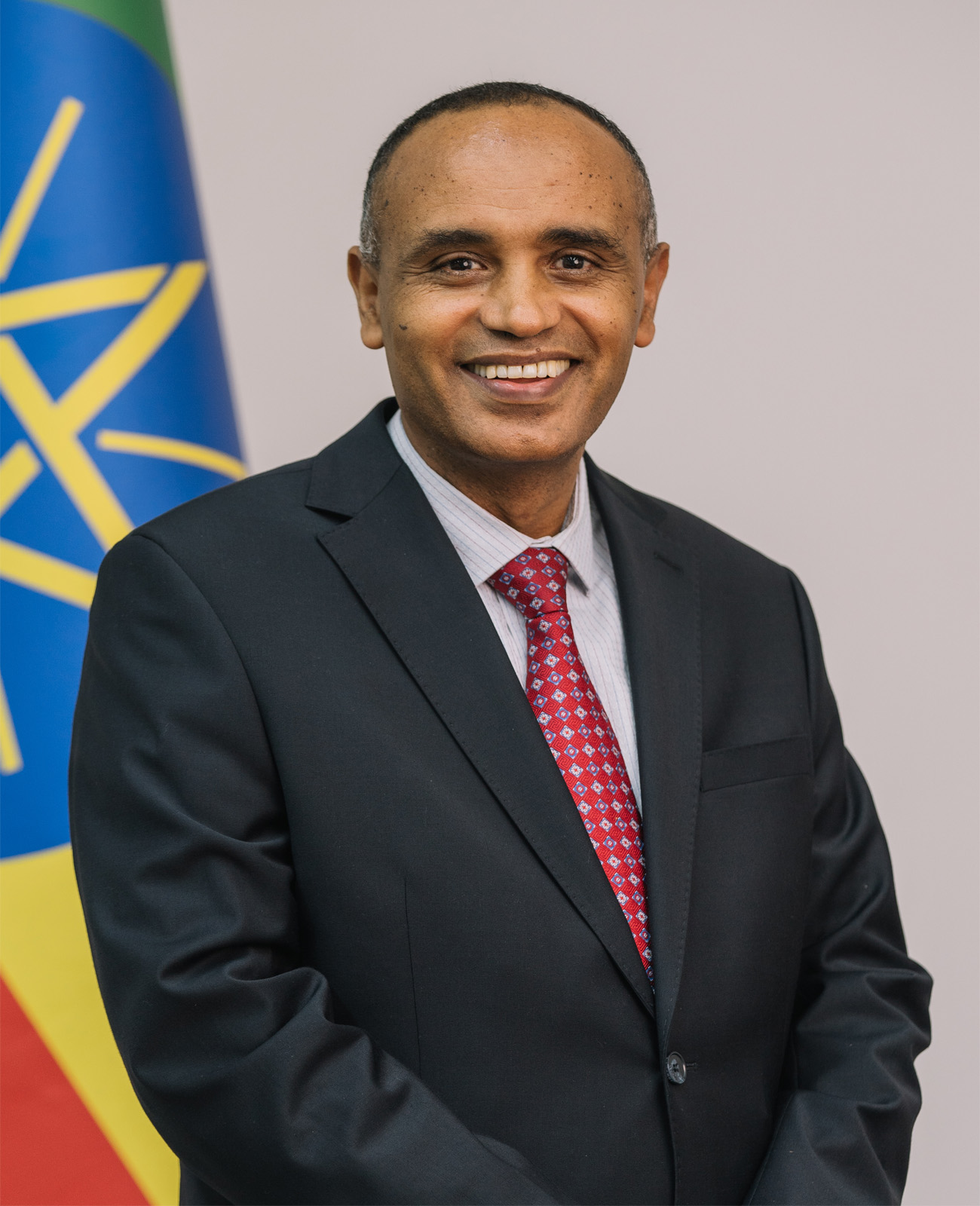
H.E. Ayisha Mohammed
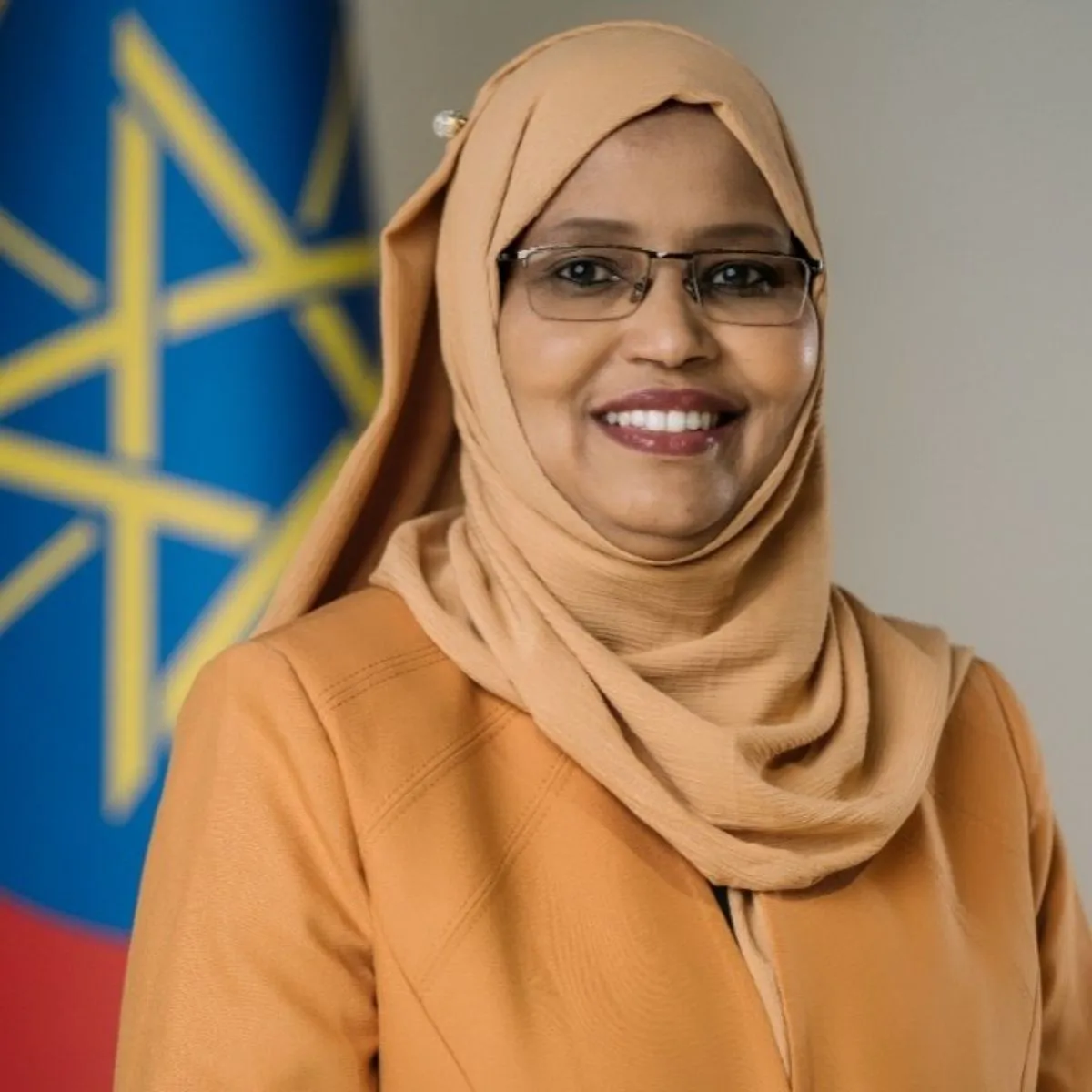
H.E. Gedion Timothewos Hessebon (SJD)
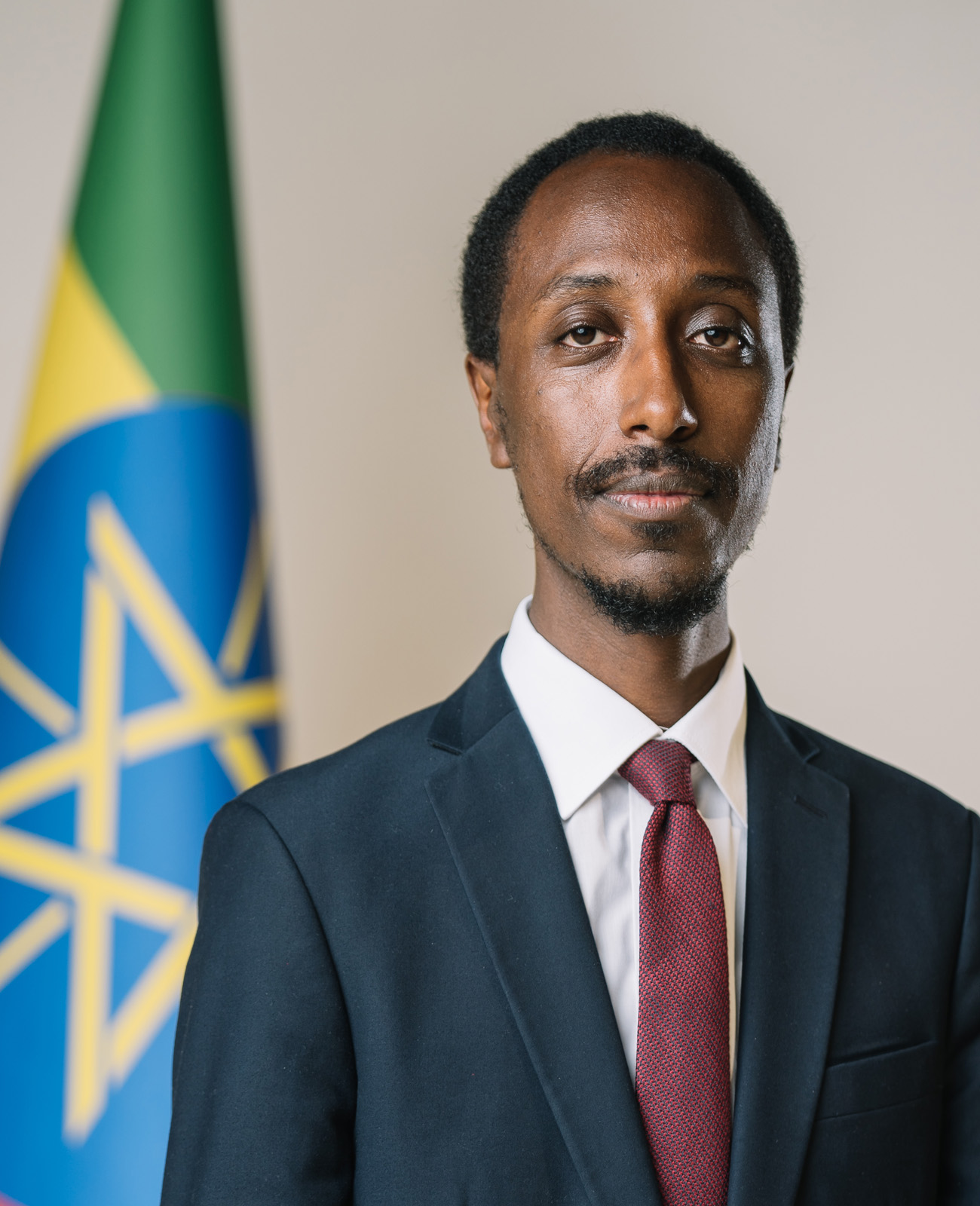
H.E. Ahmed Shide
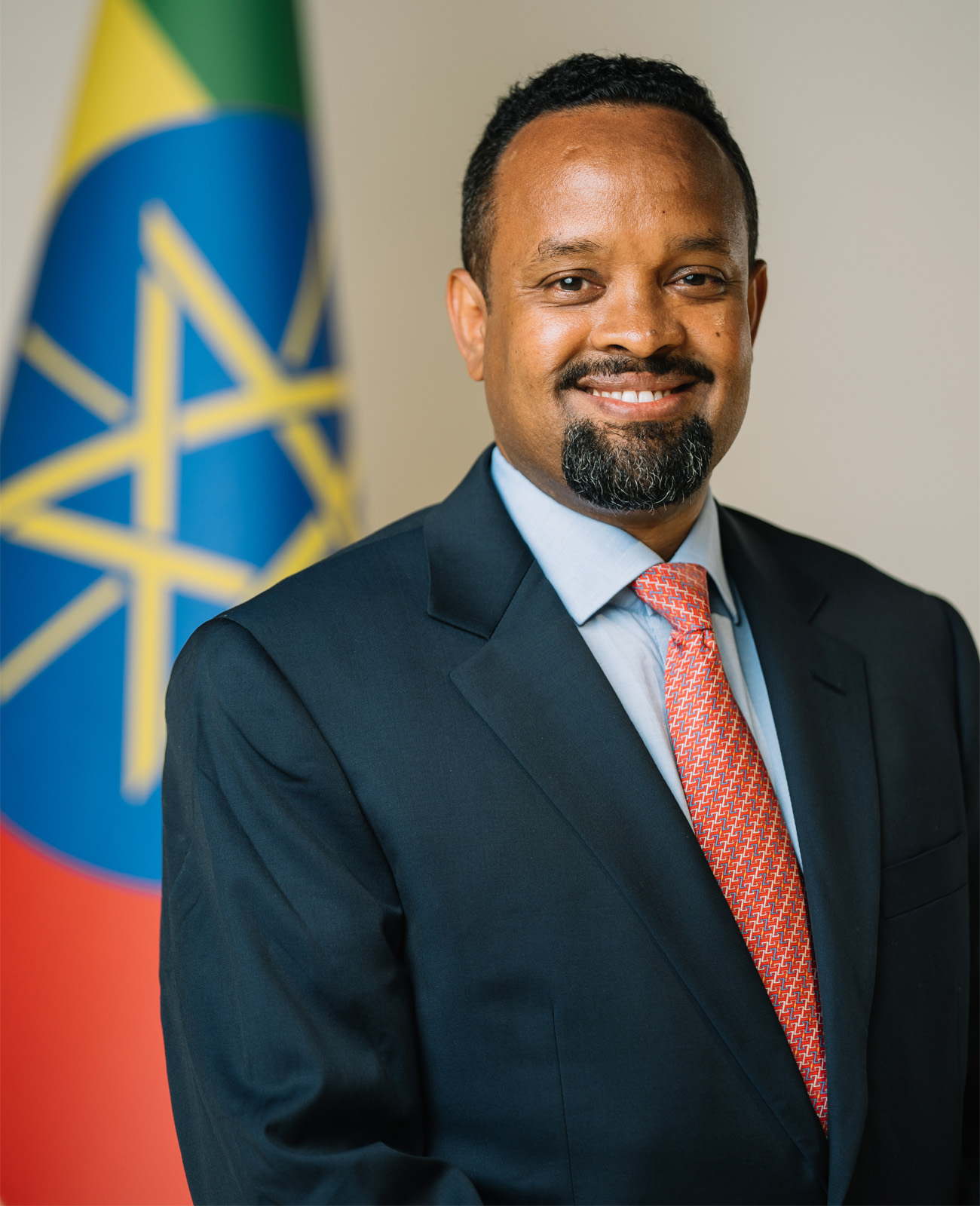
H.E. Hana Arayaslase
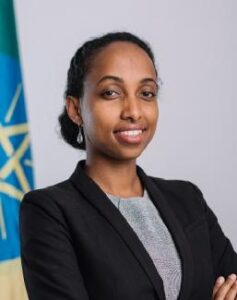
H.E. Girma Amente (PhD)
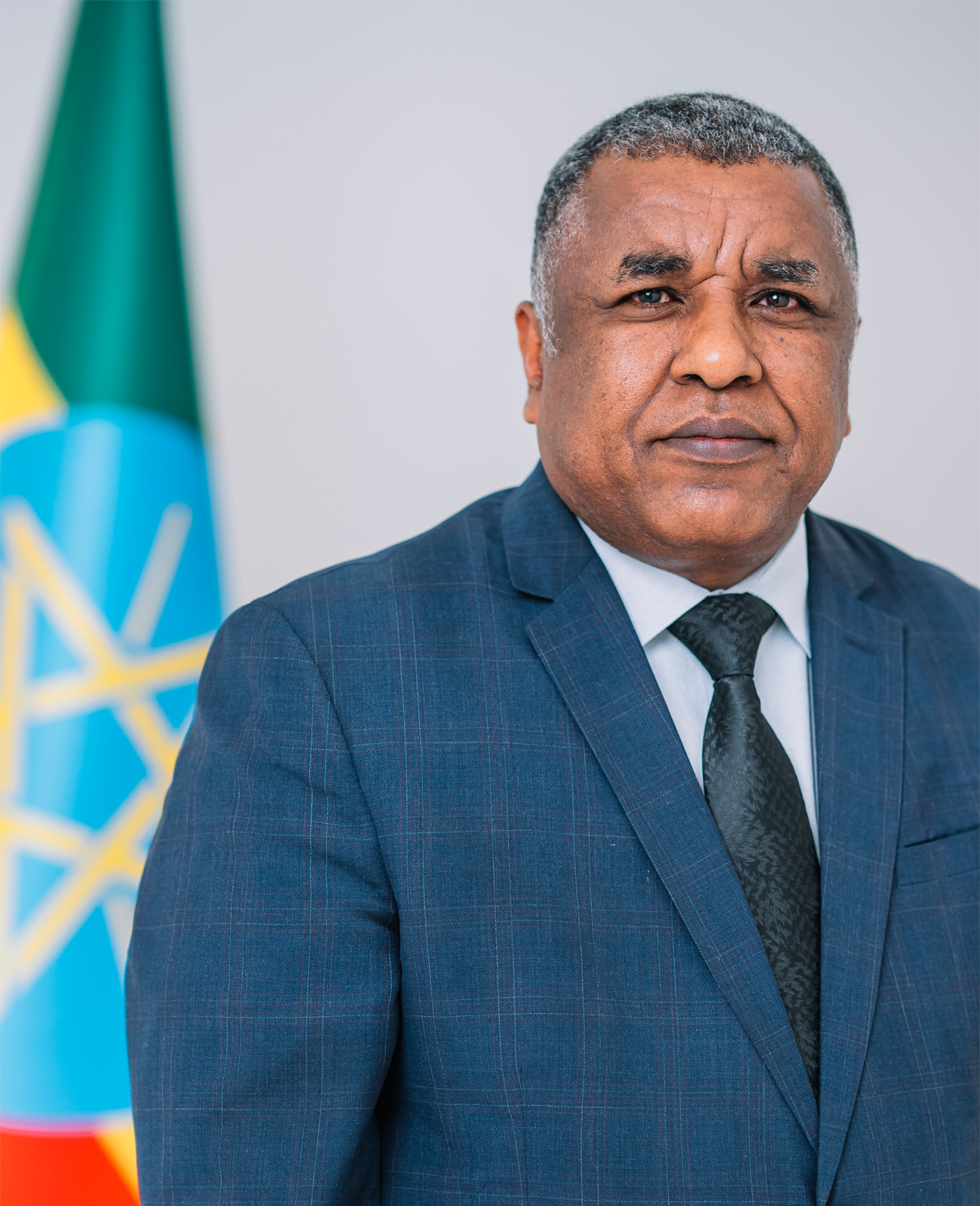
H.E. Melaku Alebel
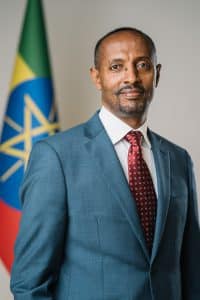
Ministry of Innovation and Technology
H.E. Bellete Molla
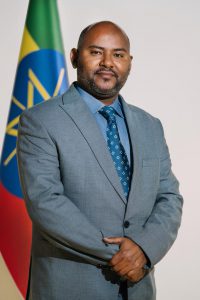
H.E. Selamawit Kassa

Ministry of Transport and Logistics
H.E. Dr. Alemu Sime
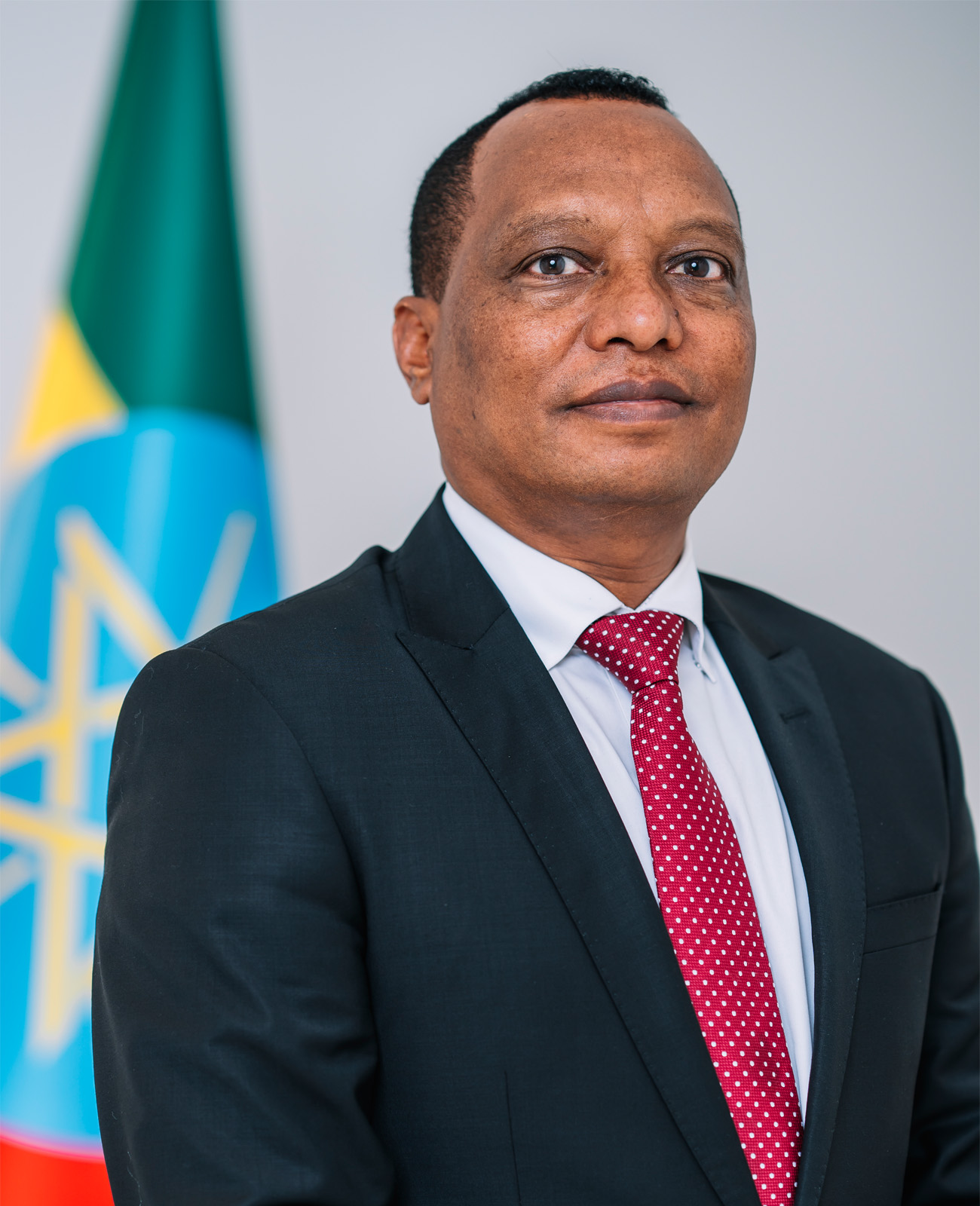
Ministry of Urban and Infrastructure Development
H.E. Chaltu Sani
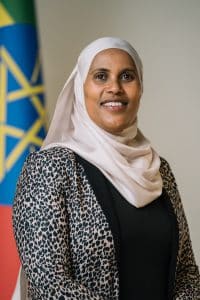
Ministry of Trade and Regional Integration
H.E. Kassahun Gofe (PhD)
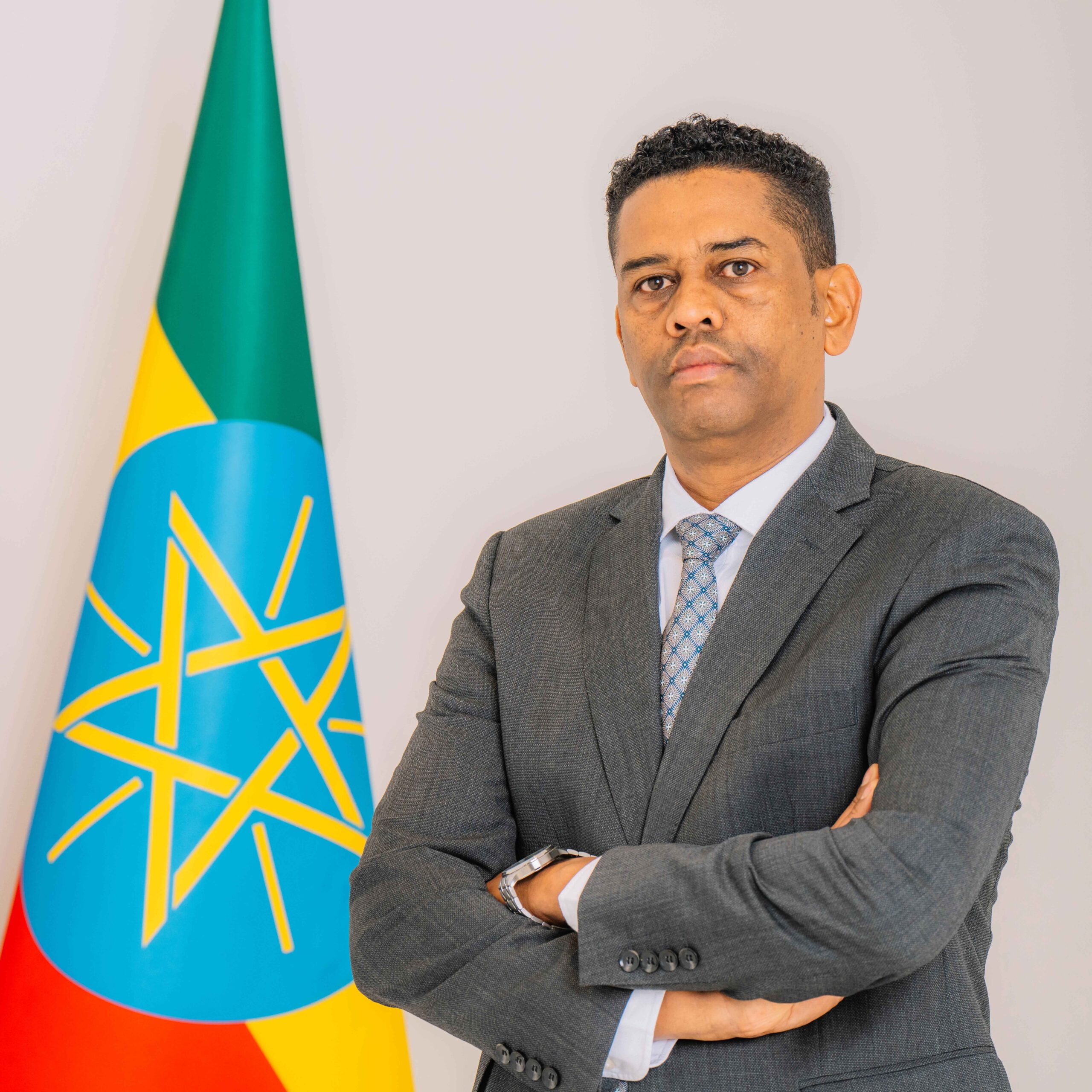
H.E. Dr. Eng. Habtamu Itefa
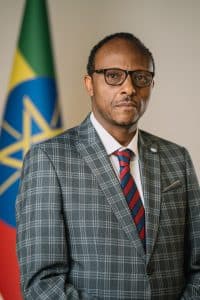
H.E. Engineer Habtamu Tegegne
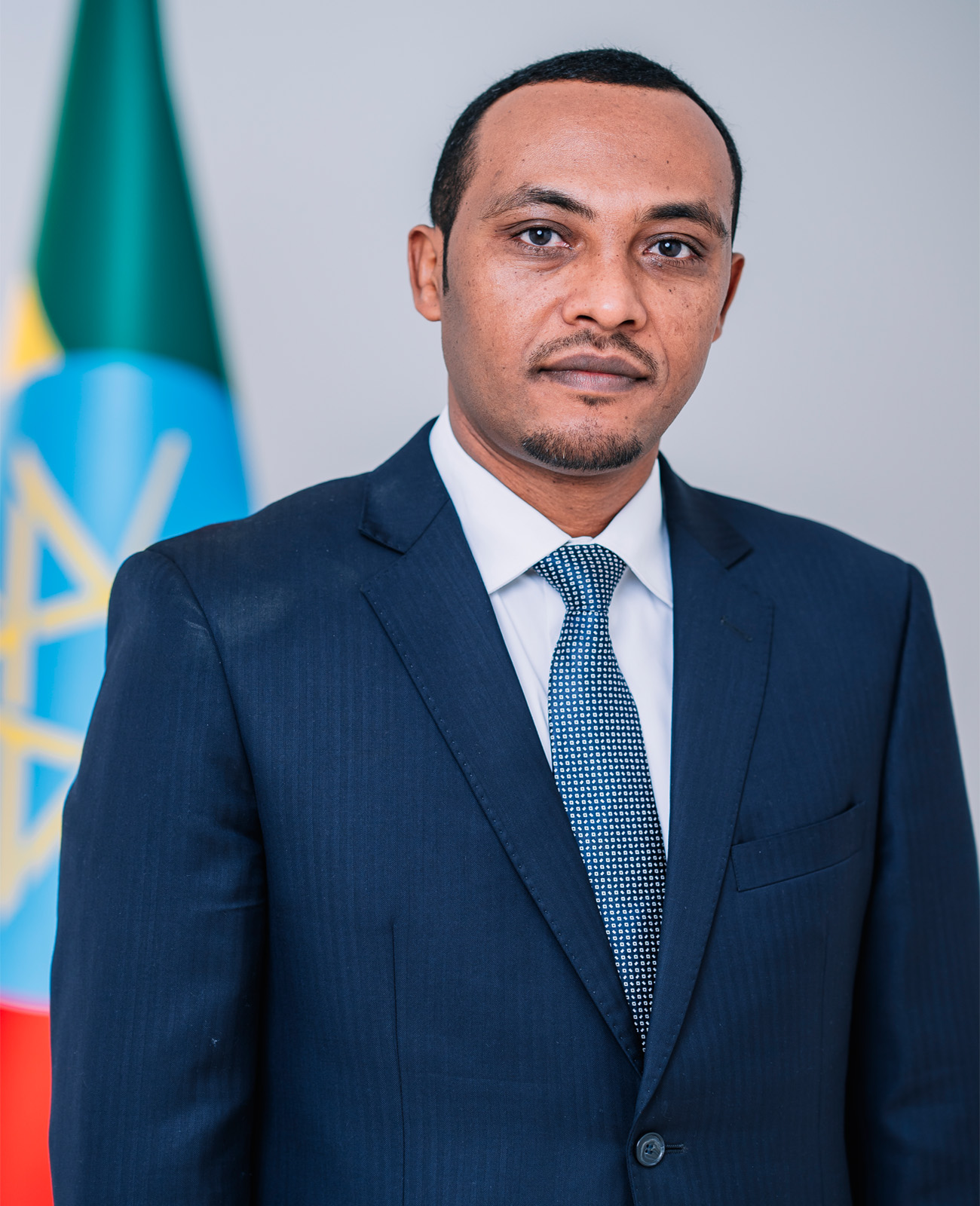
H.E. Birhanu Nega (PhD)
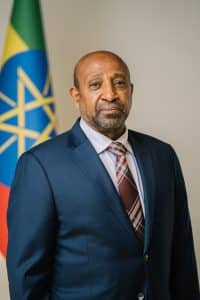
H.E. Dr. Mekdes Daba
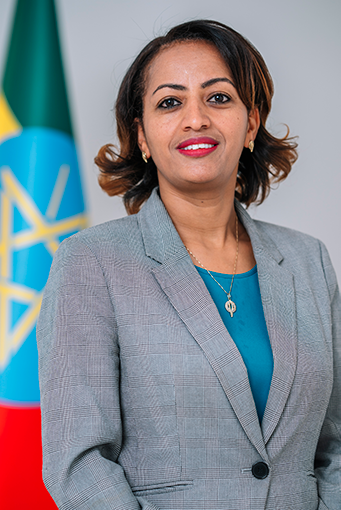
Ministry of Women and Social Affairs
H.E. Ergogie Tesfaye (PhD)
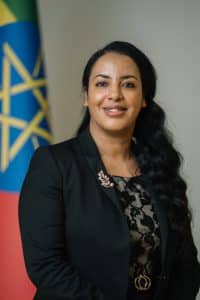
H.E. Muferiat Kamil
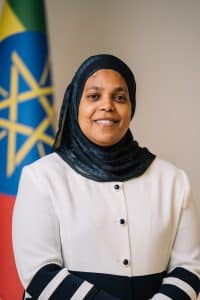
H.E. Shewit Shanka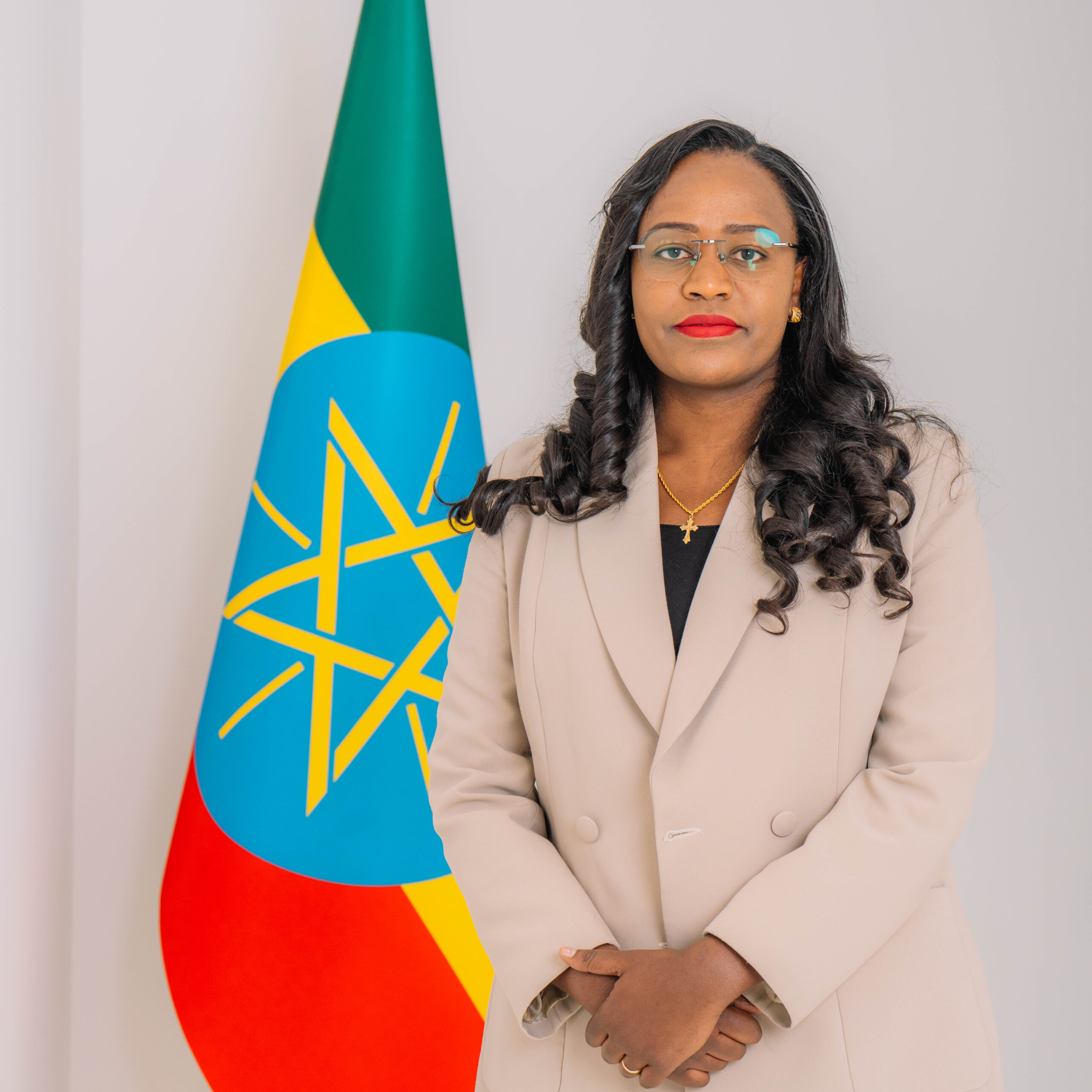
H.E. Aynalem Nigusie
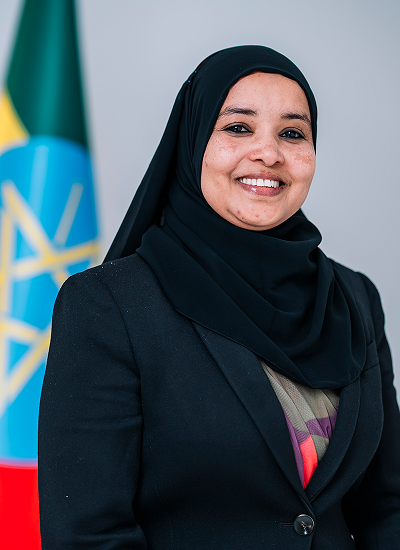
Ministry of Plan and Development
H.E. Fitsum Assefa (PhD)
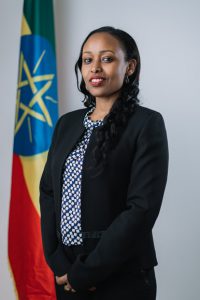
Ministry of Irrigation and Lowlands
H.E. Abraham Belay (PhD)
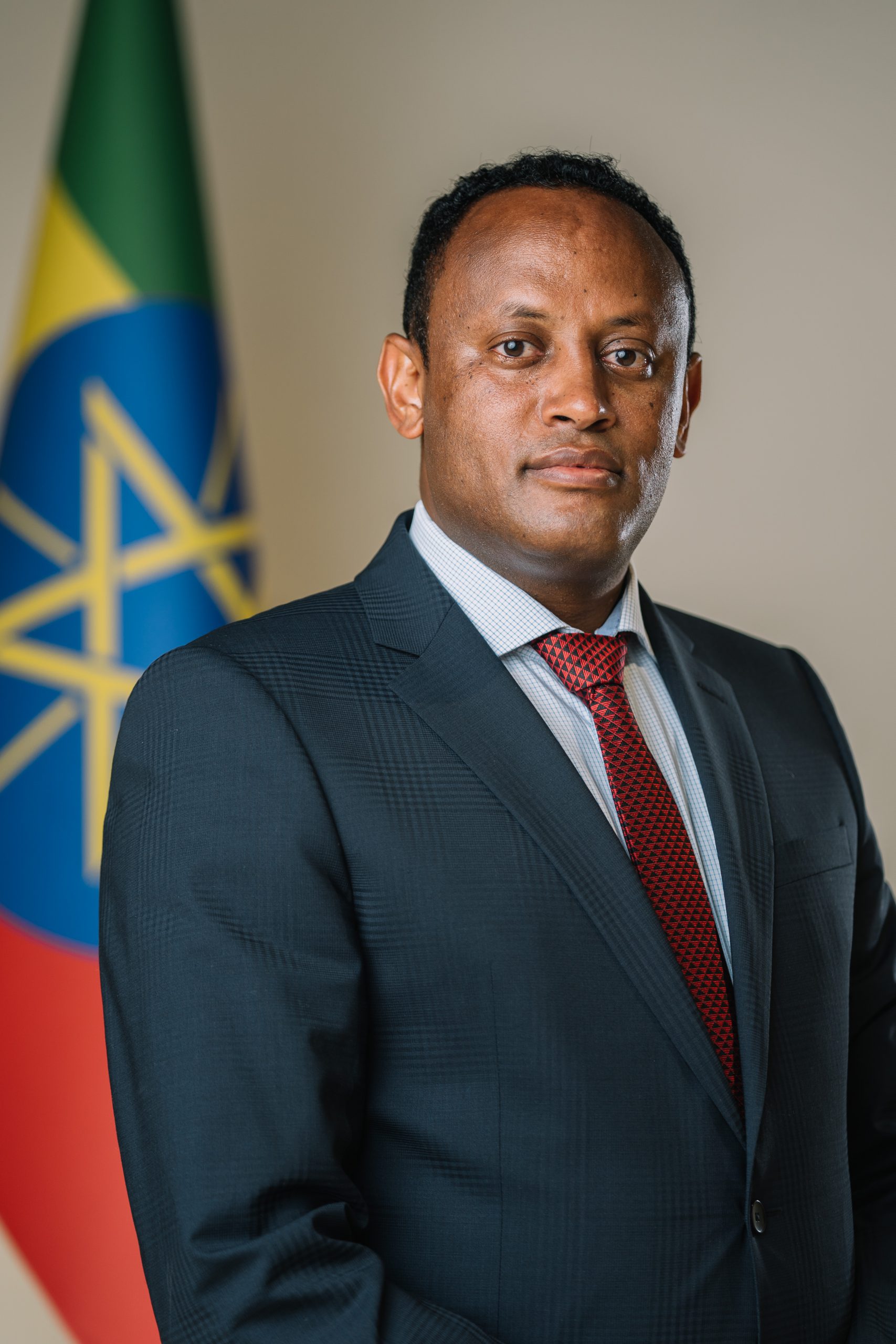
Regional State Governments with Capitals and Two City Administration:
- Capital City
- Semera
- Capital City:
- Bahr-Dar
- Capital City:
- Asossa
- Capital City:
- Gambella
- Capital City:
- Harari
- Capital City:
- Finfinnee (Addis Ababa)
- Capital City:
- Jijiga
- Capital City:
- Hawassa
- Capital City:
- Mekelle
- Capital City:
- Hawassa
Addis Ababa City Administration:
- Addis Ababa
- Dire-Dawa